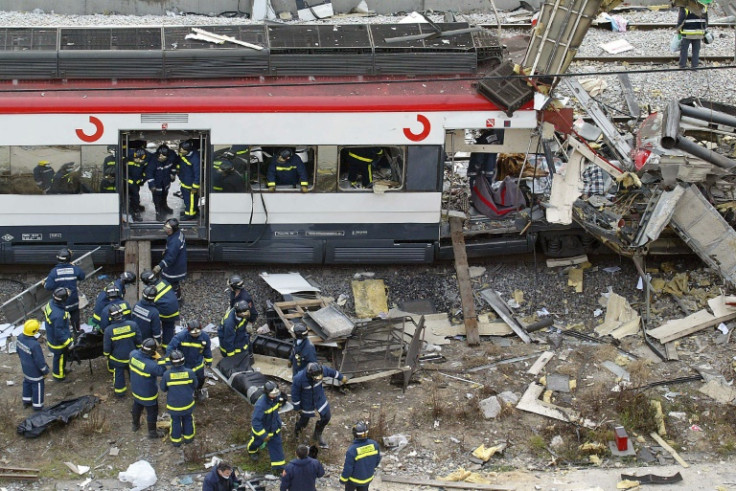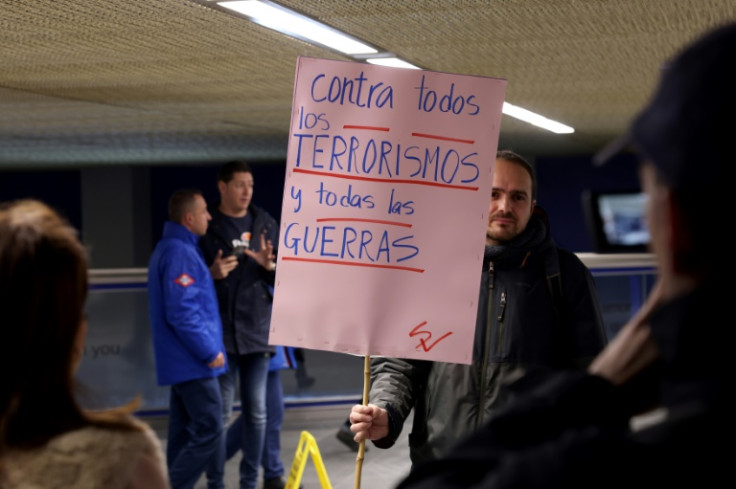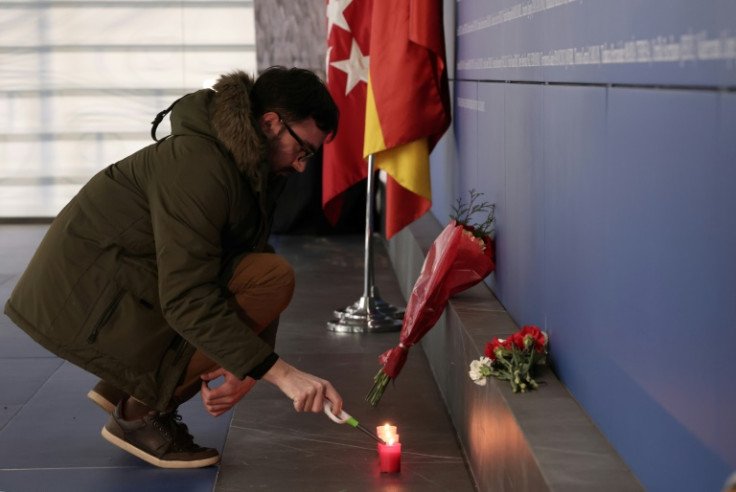Solemn Spaniards Mark 20 Years Since Deadly Train Bombings

There were tears and emotional tributes Monday as Spain and the European Union paid tribute to the 192 victims of March 14, 2004, Madrid train bombings that marked the start of mass Islamist attacks in Europe.
Heads were bowed across the country as the victims' families, survivors and others observed moments of silence to recall the fateful Thursday 20 years ago when 10 bombs sowed carnage on four commuter trains during the morning rush hour.
"This was a day which shattered our lives in an irreparable way," Ana Cristina Lopez Royo, whose husband was killed in the bombings, told the crowd of survivors and officials at a ceremony near the royal palace, saying the carnage had affected thousands of lives.
"Although we cannot bring back the lives that were so violently taken... we can and must keep their memory alive," Prime Minister Pedro Sanchez told the ceremony that was organised by Brussels, March 11 being the European Day of Remembrance "for the victims of terrorism".
"Anyone who has experienced such extreme violence first hand will never forget it."
Spain's King Felipe VI and Queen Letizia also attended as did Margaritis Schinas, vice president of the European Commission.
At the Atocha station, people -- some wiping away tears -- left carnations and candles alongside a wall listing the names of the victims, while others gathered for a memorial event at the remembrance grove in the nearby Retiro Park.
Although Spain had experienced decades of violence at the hands of the Basque separatist group ETA, it had never been hit by such a large attack.
Taxi drivers and the public pitched in to help the emergency services ferry nearly 2,000 wounded to hospital.
"Twenty years ago, we witnessed horror in Madrid. Twenty years later, on this EU day of remembrance for victims of terrorism, we don't forget the shock, the global solidarity and the victims of this hateful crime," European Council President Charles Michel wrote on X.
"Europe stands united against terror. Our fight will never stop."
Just two and a half years earlier, the United States had been hit by the 9/11 attacks in which Al-Qaeda militants killed nearly 3,000 people.
But when Madrid was hit, Europe did not immediately think of the jihadist movement founded by Osama bin Laden.
Known as 11M -- Spanish shorthand for March 11 -- the attacks occurred just days before a March 14 general election which the ruling right-wing Popular Party (PP) was slated to win.
A year earlier, prime minister Jose Maria Aznar's government had decided to join the US-led invasion of Iraq despite widespread public opposition, with Bin Laden vowing revenge on all countries involved.
But within hours of the bombings, Aznar's government publicly blamed ETA.
That hypothesis was soon debunked as investigators traced the perpetrators after finding three bombs that had not exploded. And Al-Qaeda itself claimed responsibility, saying the bombings were a response to Spain's involvement in the Iraq war.
Doubts over the government's version quickly spread, and during mass rallies protesters accused the authorities of lying.
The opposition Socialists won a resounding victory in the March 14 elections, with analysts saying the government's disastrous handling of the attacks played a key role.
In early April, seven suspected members of the jihadist cell blew themselves up as police advanced on the flat where they were hiding, also killing a police officer who is counted as the 193rd victim of the attacks.
In early 2007, 29 suspects went on trial and 18 were convicted.
Twenty years later, only three remain behind bars -- two Moroccans and a Spaniard who was jailed for supplying the explosives. None are likely to be released before 2044.
All the others have served their sentences, and most of them deported or extradited, mainly to Morocco.
Other countries also marked the European Day of Remembrance on Monday, with French Prime Minister Gabriel Attal saying the date marked "a turning point" when "Islamist terrorism struck Europe en masse for the first time".
He was speaking in the northern French town of Arras, where in October a radicalised Islamist stabbed his former teacher to death.



© Copyright AFP 2025. All rights reserved.





















